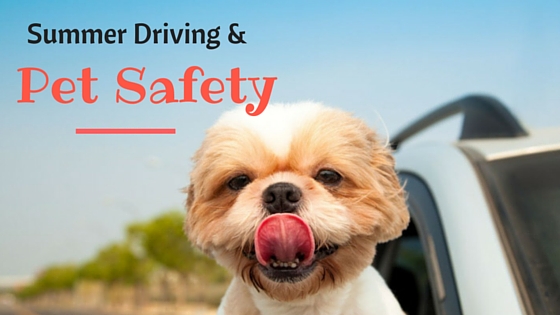Traveling With Your Pet
May is National Pet Month. Warm weather can mean more time in the car and on the road with a furry family member. JK Chevrolet has compiled tips to keep in mind when traveling with your pet.
Crate Your Pet
Many people feel guilty about crating their animals on a trip, but it's for their own safety. Just make sure the crate is well-ventilated and large enough for them to stand, lie down, and turn around in. You should also ensure that the crate won't shift during sudden maneuvers.
Dogs in cars
When driving, there are a few different options for safely transporting pets. Use a dog carrier that is large enough for them to stand and turn around in. Letting your dog roam free in the car without restraint is never a good idea, however some dogs might tolerate a canine seatbelt, which is a harness that attaches to the car's seatbelt. Another option would be to use a dog car divider or barrier, for safe transportation of larger dogs in the back of a hatchback or SUV.
If traveling by truck, always secure a pet carrier with a harness specifically designed for a truck bed. Simply tying your dog's leash to the truck is not recommended; the dog may end up jumping or falling out of the truck and while still attached by the collar could result with fatal consequences.
Cats in cars
Contrary to popular belief, car travel is possible with cats. Placing your cat in a carrier is highly recommended. Cats can be quite vocal when riding, but will usually quiet down over time. Feline calming pheromones, such as Feliway sprays are very helpful to calm a stressed kitty. Prior to your trip, allowing your cat to acclimate to the carrier is also a good idea. Place your cat's food, water and toys in inside the carrier and allow them to come and go, until they feel comfortable.
Can pets get car sick?
Pets can get motion sickness just like people. It's common for puppies to vomit during their first couple car rides. Most dogs will outgrow motion sickness, but you can try withholding a meal right before your trip to help ease nausea. However, be cautious withholding meals in small breed puppies, which need access to food often, in order to prevent low blood sugar. Most anti-nausea medications such as Dramamine and Benadryl are safe to use in dogs, but always talk to your veterinarian before giving any amount to your pets.
Never Leave Your Pet in a Hot Car
This tip simply cannot be overstated. You should never leave your animal in a hot car for any length of time - even 'just for a minute'. Regardless of if your vehicle is hidden in the shade with the windows rolled down, a parked automobile can become a furnace within minutes. Even leaving your furry friends water to drink won't help because animals can't expel heat as effectively as humans, leaving them at much higher risk for heatstroke.





